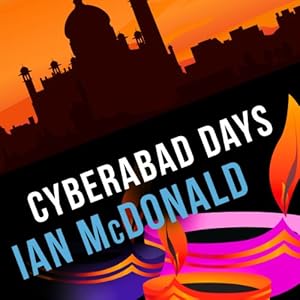

In China or India or Brazil maybe even in Russia or Europe, if those old powers can shake off the chains of history and truly reinvent themselves. But even before the ill-advised War on Terror and the global economic crash, it’s been clear that although the twentieth century can legitimately be called the American century, in the twenty-first century the nexus of technology-driven change and economic and political power will almost certainly be located elsewhere.

This isn’t surprising, because modern science fiction was invented in the USA in the 1930s, and the USA is still the dominant market place for written science fiction, and it’s the major producer of science-fiction television shows and movies, too). Sure, there have always been writers like Maureen McHugh and Bruce Sterling, and more recently Nalo Hopkinson and Paulo Bacigalupi, who have embraced a broader, global view of the future, but the default mode of science fiction is that of American hegemony, and an assumption that the values of Western late-stage free market capitalism will endure pretty much unchanged even unto empires flung up around the farthest stars. A cursory glance at recently published science fiction shows that depictions of the future aren’t evenly distributed either: the majority of science fiction depicts futures dominated by American sensibilities and cultural and economic values, and inhabited by solidly American characters. According to William Gibson, the future is already here - it’s just not evenly distributed yet.


 0 kommentar(er)
0 kommentar(er)
